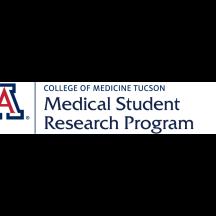Professor, Public Health
Director, Canyon Ranch Center for Prevention and Health Promotion
Distinguished Professor
Professor, Nutritional Sciences Graduate Program
Distinguished Professor
Professor, Nutritional Sciences Graduate Program
Professor, Medicine
Professor, BIO5 Institute
Professor, Clinical Translational Sciences
Professor, BIO5 Institute
Professor, Clinical Translational Sciences
Education:
- West Virginia University, 1980 (B.S.)
- American Dietetic Association, 1980 (R.D.)
- University of Arizona, 1987 (M.S.)
- University of Arizona, 1998 (Ph.D.)
Major Areas of Research Interest:
- Women's Healthy Eating and Living Study (WHEL). (PI for UA site) This study focuses on the role of a high fruit and vegetable, low fat, high fiber diet in reducing breast cancer recurrence among women previously treated for breast cancer.
- Cruciferous vegetables, d-limonene and breast cancer recurrence (PI - NIH/K07). This study involves the development and validation of a cruciferous vegetable questionnaire, development of a isothiocyante database and application of validated questionnaires to the WHEL cohort to determine the relationship between intake of these specific food groups and breast cancer recurrence.
- Women's Health Initiative (WHI). (Co-PI, UA site). This is a multicenter of over 165,000 post-menopausal women to explore the realtionship between diet, calcium supplementation and/or hormone replacement and chronic disease including cardiovascular disease, and breast and colon cancer.
- Assessment of Breast Nipple Aspirate-Ductal Lavage Sample Cytology and Quantitative Morphometry as Early (PI, Pfizer). This study is designed to assess the feasibility of collecting ductal lavage fluid from women with varying stages of breast disease as well as to determine if alterations in nuclear signatures assessed by karyometry correlate with clinical disease. Longer term these measures may be viable intermediate biomarkers for breast cancer useful in determining the efficacy of dietary interventions.
- Dietary and serum carotenoids and oxidative damage among breast cancer survivors (PI, USDA). This study will assess the relationship between serum carotenoid values, dietary intake of carotenoids and levels of oxidative damage among a sub-sample of breast cancer survivors participating in the WHEL study.
- Susan G. Komen Foundation (PI). Green tea intervention among women with breast cancer. This study is recruiting women diagnosed w/ stage I, II invasive breast cancer to assess the effects of regular green tea intake during a post chemotherapy resting energy expenditure, body weight, body composition and cognitive function.
Selected Publications:
Thomson CA, Rock CS, Giuliano A, Newton TR, Cui Haiyan, Green TL and Alberts DS. Longitudinal changes in body weight and body composition among women at risk for breast cancer recurrence consuming a high-vegetable, fruit and fiber, low fat diet. Eur J Nutr., 44:18-25, 2005.
Newman VA, Thomson CA, Rock CL, Flatt SW, Kealey S, Bardwell WA, Caan BJ, Pierce JP. Achieving substantial changes in eating behavior among women previously treated for breast cancer--an overview of the intervention. J Am Diet Assoc, 105:382-91; quiz 488, 2005.
Thomson CA, Giuliano AR, Shaw JW, Rock CL, Ritenbaugh CK, Hakim IA, Hollenbach KA, Alberts DS, Pierce JP. Diet and biomarkers of oxidative damage in women previously treated for breast cancer. Nutr Cancer, 51:146-54, 2005.
Rock CL, Flatt SW, Natarajan L, Thomson CA, Bardwell WA, Newman VA, Hollenbach KA, Jones L, Caan BJ, Pierce JP. Plasma carotenoids and recurrence-free survival in women with a history of breast cancer. J Clin Oncol, 23:6631-8, 2005.
Sponsored Research Through MSRP:
Amanda Rose Brown, (MSRP 2005): "Green tea intervention for weight gain prevention among women with breast cancer."
Eric Lander, (MSRP 2015): "Dog Ownership and Cancer Risk: A Cross-Sectional Analysis."
Advanced Research Distinction Track (RDT):
Eric Lander, (RDT Class of 2018): "Lifestyle interventions for cancer and gallbladder disease"
Wednesday, March 7, 2018

